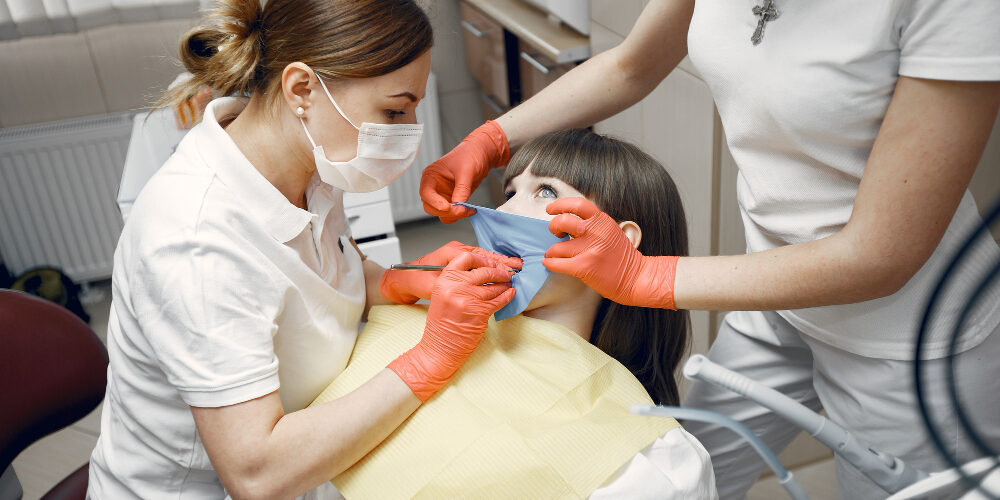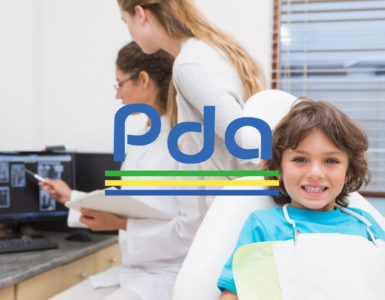Dental emergencies can be some of the most stressful experiences, especially when they involve your child. Parents may feel panicked, uncertain, or even helpless in the moment. Pediatric Dental Associates of Ridgewood understands these situations, and they’re here to support you with expert guidance tailored for parents and guardians. As the best pediatric dentist Teaneck, they provide essential advice on handling dental emergencies in children, helping you stay calm and take effective action to protect your child’s health.
Common Dental Emergencies in Children: What to Watch For
Children’s adventurous nature and boundless energy can sometimes lead to accidental injuries. Dental emergencies can range from minor to serious, and understanding what each type of emergency entails can help you make informed decisions. Let’s dive deeper into some of the most common dental emergencies among children and what signs you should look for:
- Toothache: A toothache might not seem like an emergency at first, but it’s often a symptom of a bigger issue, such as a cavity or dental trauma. If your child complains of persistent tooth pain, it’s a good idea to inspect the area. Look for signs of swelling, redness, or an abscess (a swollen area filled with pus), which could indicate an infection. Younger children may not be able to describe their pain, so watch for signs like irritability, fever, or refusal to eat.
- Chipped or Broken Teeth: Children can chip or break a tooth while playing, eating, or in a fall. A minor chip may not be painful, but a severe break can cause significant discomfort and sensitivity. In some cases, the damage may reach the nerve of the tooth, making it essential to seek professional help. Even if the chip seems small, a quick assessment by a pediatric dentist can help prevent future complications.
- Knocked-Out Tooth: Whether it’s a baby tooth or a permanent tooth, a knocked-out tooth is a dental emergency that requires swift action. With permanent teeth, timing is crucial for reattachment. If your child loses a permanent tooth, aim to visit the dentist within 30 minutes. On the other hand, a knocked-out baby tooth doesn’t need to be reinserted, but you should still consult a pediatric dentist to ensure there’s no damage to the developing permanent tooth beneath.
- Loose or Dislodged Teeth: Accidents can sometimes result in teeth becoming loose or partially dislodged. This can be painful and worrying, especially if it’s a permanent tooth. A loose tooth due to injury often requires professional evaluation, as it could signal damage to the tooth root or surrounding bone. If a baby’s tooth is loose due to injury rather than natural development, it’s best to have it checked to rule out damage to the permanent tooth underneath.
By recognizing the signs and symptoms of common dental emergencies, you’re already halfway to resolving the issue. The next step is knowing what to do in those critical moments before professional help is available.
Immediate Steps to Take During a Dental Emergency
When faced with a dental emergency, quick and calm action is key. As the best pediatric dentist Teaneck, they’ve outlined detailed steps for handling each type of emergency, ensuring that you’re providing your child with the best possible care while reducing pain and preventing further complications.
- For Toothaches: Encourage your child to rinse their mouth with warm salt water to clean the area and reduce inflammation. A cold compress on the outside of the cheek can help alleviate pain and reduce swelling. Avoid placing aspirin directly on the gums, as it can cause chemical burns to the tissue. A child-safe pain reliever can be given, but avoid aspirin as it can cause complications, especially if there’s bleeding. Always check with your pediatric dentist for the next steps.
- For Chipped or Broken Teeth: Rinse the area with warm water to remove any debris, and try to recover any pieces of the tooth if possible. You can save these pieces in milk or saline solution to take to the dentist. Applying a cold compress to the outside of the mouth can help reduce swelling and numb the pain. Even if the break seems minor, prompt dental evaluation is important to assess any underlying damage and discuss repair options.
- For Knocked-Out Teeth: Gently rinse the tooth with water if it’s a permanent tooth, avoiding any scrubbing to preserve the root. If you’re comfortable, try to place it back in the socket, instructing your child to bite down gently to hold it in place. If that’s not possible, place the tooth in milk, saline, or a tooth preservation product if available. Time is crucial here – a tooth re-implanted within 30 minutes has a better chance of successful reattachment.
- For Loose or Dislodged Teeth: Gently press a clean cloth or gauze to control bleeding and reduce movement. Avoid wiggling or pressing the tooth back into place, as this can cause more damage. Contact your pediatric dentist as soon as possible for an assessment.
Knowing these steps can make a significant difference in how well your child’s dental emergency is managed. Prompt action not only alleviates discomfort but can also improve the likelihood of a full recovery.
When to Seek Professional Help
Some dental issues require immediate attention from a specialist. Pediatric dentists are specially trained to handle the unique challenges of children’s dental care, including their smaller and more delicate structures and emotional needs. When determining whether to seek professional help, consider the following scenarios:
- Persistent Pain or Swelling: If pain continues despite initial home care, or if swelling increases, it may be a sign of infection or a deeper issue that needs to be addressed professionally.
- Visible Damage to the Tooth or Gum: Any visible cracks, chips, or breakages that go beyond the enamel layer warrant an immediate visit to a pediatric dentist. Damage that extends into the pulp or nerve of the tooth could require treatment like a crown or even root canal therapy.
- Excessive Bleeding: If your child’s mouth is bleeding and you’re unable to control it with gentle pressure, it’s time to see a dentist. Prolonged bleeding may indicate a more serious injury, such as a laceration to the gums or other soft tissues.
- Knocked-Out Permanent Teeth: A lost permanent tooth is an urgent situation. Quick action is needed to increase the chances of saving the tooth. For expert care, their best pediatric dentist Teaneck page provides more insights into how they handle such cases.
The Importance of Choosing a Pediatric Dental Specialist
Children’s dental emergencies require a different approach than adult dental care. Pediatric dentists like those at PDA Ridgewood undergo extensive training in managing both the physical and emotional aspects of children’s dental care. Here are some reasons why specialized pediatric care can make all the difference during a dental emergency:
- Child-Friendly Techniques: Pediatric dentists use techniques that cater to children’s unique needs. Their offices are designed to be comforting, and the staff is trained in behavior management techniques that make the experience less stressful for young patients.
- Specialized Equipment: The equipment used in pediatric dentistry is often smaller and more suited to children’s mouths. This allows us to provide care that is both safe and effective, even for the littlest patients.
- Preventive Focus: Pediatric dentists emphasize preventive care, helping to avoid future emergencies through regular check-ups, cleanings, and tailored advice on diet and oral hygiene.
Choosing the right provider ensures your child receives care tailored to their needs, in an environment designed just for them.
Prevention: The Best Defense Against Dental Emergencies
Preventing dental emergencies is often about creating good habits and taking simple precautions. Here’s an expanded guide on steps you can take to minimize the risks of dental emergencies:
- Encourage the Use of Mouthguards: For children involved in sports, a well-fitted mouthguard can protect against impact injuries. Talk to your pediatric dentist about custom mouthguards, which provide better protection and comfort than over-the-counter options.
- Schedule Regular Dental Check-Ups: Consistent visits allow dentists to catch issues like cavities or weakened enamel before they turn into emergencies. During check-ups, their pediatric specialists provide personalized guidance on how to care for your child’s teeth based on their specific needs.
- Promote Safe Eating Habits: Teach children to avoid chewing on hard items like ice or popcorn kernels, which can easily crack teeth. Encourage a balanced diet rich in calcium and vitamin D, essential for strong teeth.
- Childproof Your Home: Children often explore with a sense of curiosity, which sometimes leads to falls and injuries. Consider using corner protectors on furniture and rugs to reduce the risk of trips and falls.
A proactive approach to dental care can help keep your child’s smile healthy and strong, but knowing how to handle emergencies when they do arise ensures that you’re prepared for anything.
Why Choose Pediatric Dental Associates of Ridgewood?
Pediatric Dental Associates of Ridgewood offers much more than just emergency care—They provide a comprehensive, holistic approach to your child’s dental health. Their services are designed to meet the unique needs of children at every stage of development, from infants just starting to grow their first teeth to teenagers requiring more specialized care. They emphasize the importance of preventive services, like regular dental cleanings and fluoride treatments, to protect your child’s smile before problems arise. In addition to routine check-ups, the team is highly skilled in managing dental emergencies, ensuring that your child receives immediate, compassionate care when it matters most.
As the best pediatric dentist Teaneck, they are committed to creating a welcoming, child-friendly environment that helps our young patients feel safe and at ease. Their dedicated team goes above and beyond to ensure each visit is a positive experience, helping children build a foundation for lifelong oral health. Visit Pediatric Dental Associates of Ridgewood to see how their commitment to high-quality pediatric dental care can make a difference for your family.
Additional Resources for Parents
For further reading and expert advice, explore these authoritative resources on dental emergencies:
- American Academy of Pediatric Dentistry (AAPD) on Dental Emergencies
- Mayo Clinic’s Guide to First Aid for Dental Emergencies
- American Dental Association (ADA) on Tooth Injury





